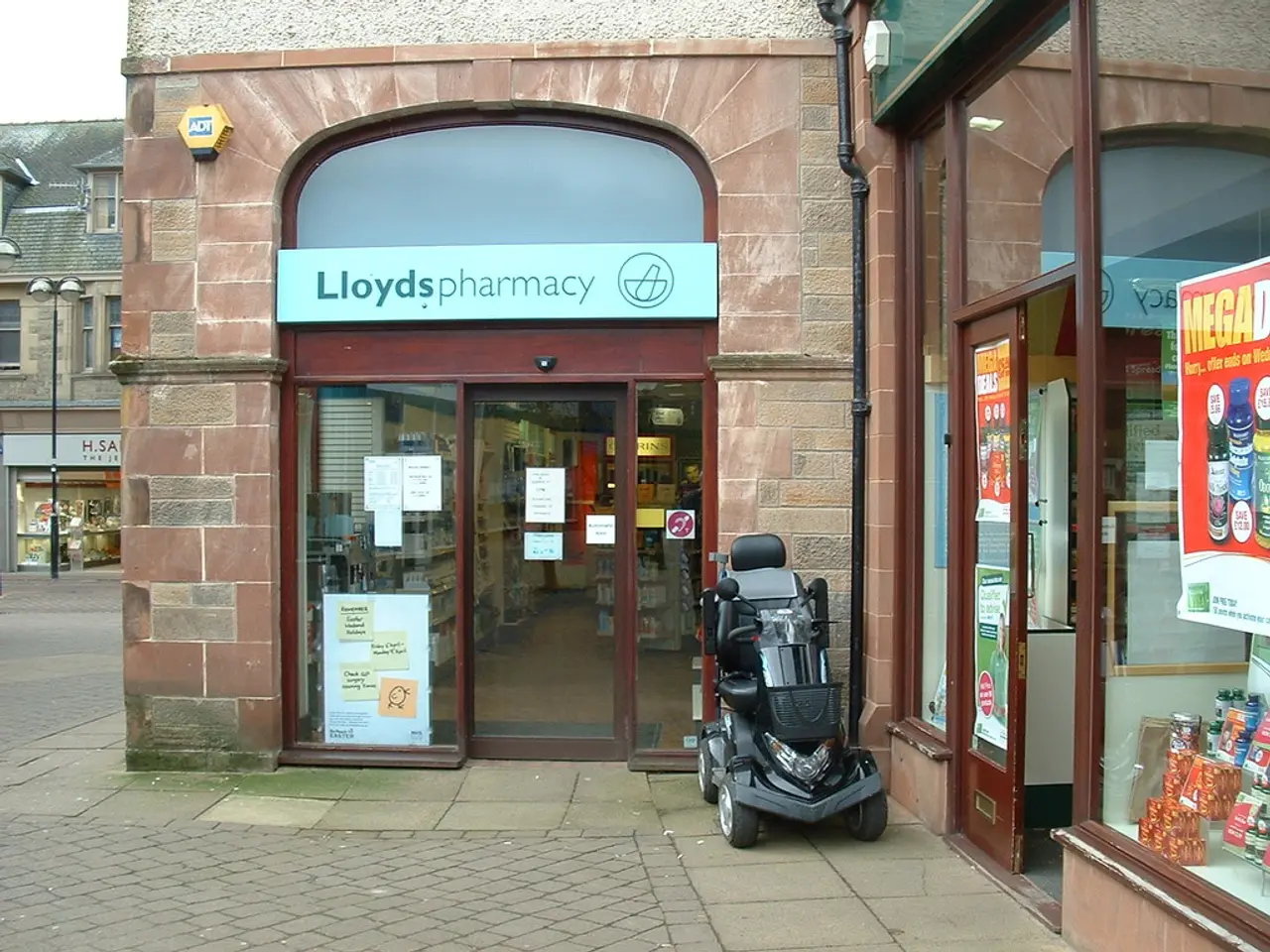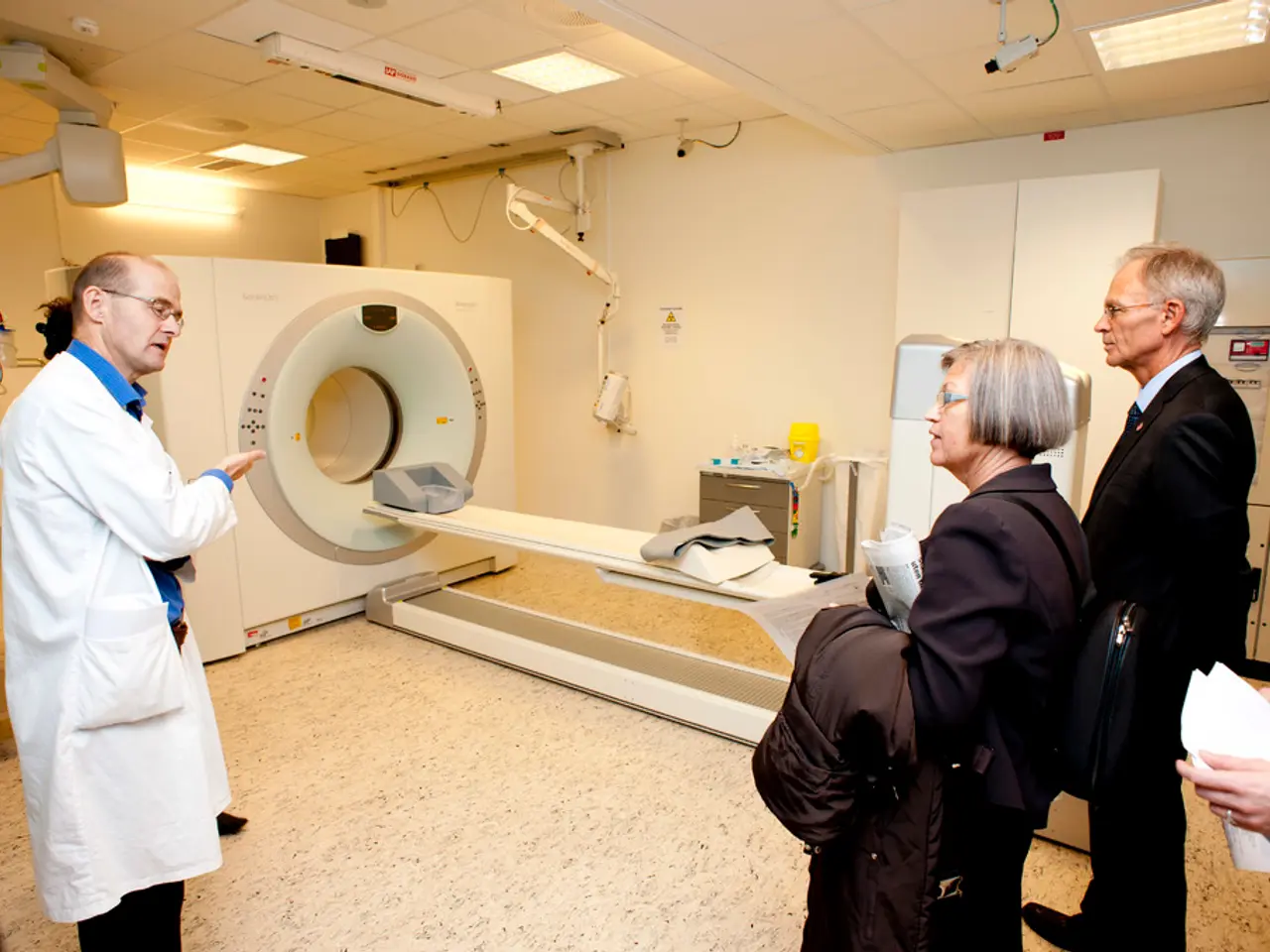Pharmaceutical company Novartis accelerating efforts to entirely produce essential medications in the U.S., with tariffs imminent.
**Novartis Accelerates U.S. Drug Manufacturing in Response to Tariff Threats**
Swiss pharmaceutical giant, Novartis, has announced a significant investment plan to reshore its drug manufacturing in the United States. The company aims to invest $23 billion over the next five years, with the goal of producing all key drugs for U.S. patients domestically by the end of the decade.
The decision to reshore has been largely driven by potential pharmaceutical tariffs, particularly those proposed by the Trump administration. These tariffs could reach as high as 200%, posing a significant threat to imported goods. To avoid these costs, Novartis has decided to move its production to the U.S., a decision that has been expedited by the threat of tariffs.
The reshored manufacturing will focus on producing biologics, small molecules, and other key drugs for the U.S. market. This shift will likely take several years, with a typical construction time of three to five years, plus additional time for regulatory approval. As a result, full reshoring of Novartis’s drug production is expected to be completed by around 2028–2030.
The $23 billion investment will allow Novartis to bypass the tariffs and maintain supply chain resilience in the face of ongoing trade uncertainty. The move also provides the company with greater control over its supply chain, reducing risk from geopolitical tensions and potential future disruptions.
However, the large-scale investment increases Novartis’s fixed costs, which must be offset by enhanced operational efficiency or pricing power. There is also the risk of delays in construction, regulatory approvals, or operational ramp-up, which could extend the period during which Novartis remains exposed to tariff risks.
Meanwhile, smaller, generic-focused firms face greater challenges under the new tariff regime. With thinner margins, these companies may be forced to exit the market, potentially leading to a shift in the competitive landscape.
In addition to the reshoring plans, Novartis has also reported strong financial performance. The company reported a Q2 earnings growth of 11%, bringing in over $14 billion, and raised its 2025 outlook, expecting net sales to grow in the high single-digit range. Entresto, Novartis' top-selling drug, had Q2 sales of nearly $2.34 billion.
Novartis is not the only pharmaceutical company making moves to reshore its manufacturing. President Donald Trump has given pharma companies a grace period of "about a year, a year and a half" to adjust their supply chains. Other companies, such as Pfizer and Merck, have also announced plans to invest in U.S. manufacturing facilities.
References:
[1] Novartis. (2021). Novartis to invest $23 billion to reshore U.S. drug manufacturing. Retrieved from https://www.novartis.com/news/media-releases/novartis-to-invest-23-billion-to-reshore-us-drug-manufacturing
[2] CNBC. (2020). Trump tariffs on China could force pharma companies to move drug production to U.S. Retrieved from https://www.cnbc.com/2020/08/08/trump-tariffs-on-china-could-force-pharma-companies-to-move-drug-production-to-u-s.html
[3] Pharmaceutical Online. (2021). Novartis announces new U.S. manufacturing sites to reshore drug production. Retrieved from https://www.pharmaceuticalonline.com/doc/novartis-announces-new-us-manufacturing-sites-to-reshore-drug-production-0001
[4] Stat News. (2021). Novartis is reshoring drug production to the U.S. But it's not a slam dunk. Retrieved from https://www.statnews.com/2021/02/16/novartis-is-reshoring-drug-production-to-the-u-s-but-its-not-a-slam-dunk/
- The significant investment by Novartis in U.S. drug manufacturing is also aligned with the health-and-wellness sector, as the goal is to produce all key drugs for U.S. patients domestically.
- The financial implications of the $23 billion investment extend beyond packaging costs and tariff avoidance, as Novartis must offset increased fixed costs through enhanced operational efficiency or pricing power in the investing arena.
- The reshoring decisions by pharmaceutical companies such as Novartis, Pfizer, and Merck, in response to tariff threats, are expected to have ripple effects in the medical-conditions industry, potentially leading to a shift in the competitive landscape for smaller, generic-focused firms.




